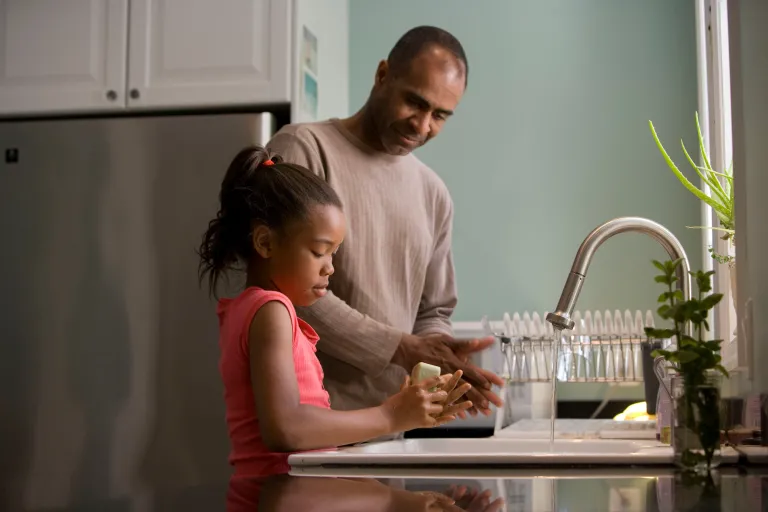
Every child deserves nurturing and reliable parents to guide them through childhood. However, not all families share this reality. If you're a parent facing the challenge of explaining to your children why they can't often see their other parent due to unreliability or that their ‘other’ parent has chosen not to be in touch, this conversation can feel like a maze with no exit. It's a delicate topic that requires compassion, understanding, sensitivity and truthfulness. Here's a guide on how to navigate this difficult discussion.
Prepare yourself emotionally
Before starting this conversation, ensure that you're emotionally ready to handle your child's questions, confusion, or even potential outbursts. You may be feeling very angry or hurt yourself at how your children’s other parent is behaving but it’s very important to keep your own feelings under control, as far as discussing the situation with your children is concerned. Your emotional stability will create a safe space for your child to express their feelings freely. If necessary, seek professional help to guide you through this process before talking with your children.
Choose the right time
Timing is crucial. Choose a time when both you and your child are relaxed and not preoccupied and when it’s unlikely you’ll be interrupted. This is not a conversation to rush through so make sure you won’t have a deadline like bedtime, a school run, or other commitments that could mean you have to end the conversation prematurely
Use age-appropriate language
It's important to keep the conversation at a level your child can understand. For younger children, simplify the situation without blaming the other parent. You might say, "Sometimes, xx isn't able to keep promises even though they want to, and it's not fair for you to be disappointed." As they mature, more detailed conversations about responsibility and reliability can be introduced. It may be that you don’t know whether this is a temporary or permanent situation but it’s important not to say that things may change if you’re not sure they will. Sometimes, sadly, parents will stop seeing their own children because they’re in a new relationship with someone who has children and they become a part of that family, leaving their original family behind.
Be honest but avoid negativity
Honesty is critical, but avoid negative language about the other parent, wherever possible. Remember, your child shares a bond with them and may love them and feel a sense of loyalty towards them that you don’t. Use neutral words to explain the situation, like, "Sometimes people struggle with responsibilities, and they're not always able to do the things they should. It's not because they don't care, it's because they have some problems they need to work on."
Reassure your child
Reassure your child that the other parent's unreliability is in no way their fault and has nothing to do with anything that they may have done or not done. Often, children internalise these experiences, thinking they're the problem. Make it clear that the other parent's actions are about their struggles, not the child's value.
Validate their feelings
Allow your child to express their emotions and validate their feelings. They’ll likely feel a range of emotions, including anger, sadness, and confusion. Let them know that it's okay to feel this way, and it's part of processing the situation.
Encourage open communication
Promote an ongoing dialogue with your children. Let them know they can always approach you with their thoughts, feelings, and concerns. This will make them feel safe and secure, knowing they have a supportive parent to rely on.
Seek professional help if needed
If you notice that your child is exhibiting signs of distress such as changes in behaviour, mood swings, or they’re having difficulty in concentrating at school or dropping out of friendship groups, don't hesitate to seek help for them from a professional counsellor. They can provide tools and strategies to help your child cope with their feelings.
Navigating these discussions can be daunting, but remember, your goal is to create an environment of understanding, empathy, and security for your child. It's essential to reassure your child of your consistent presence and love, regardless of the other parent's actions. It's through these difficult moments that we can teach our children some of life's most important lessons: resilience, emotional intelligence, and the power of honest, open communication.
How we can help
If you’re looking for support with your relationships, we can help. We offer a range of ways to speak with a trained relationship expert including ongoing counselling, 30 minute web and phone chats, and one session therapy.
Find out which service is right for you
How you can help
Have you found this advice helpful? Make a donation to help us reach more people and continue supporting the nation’s relationships:
Can't afford to donate? We understand. Instead, we ask that you leave us a 5 star review on Trustpilot.
